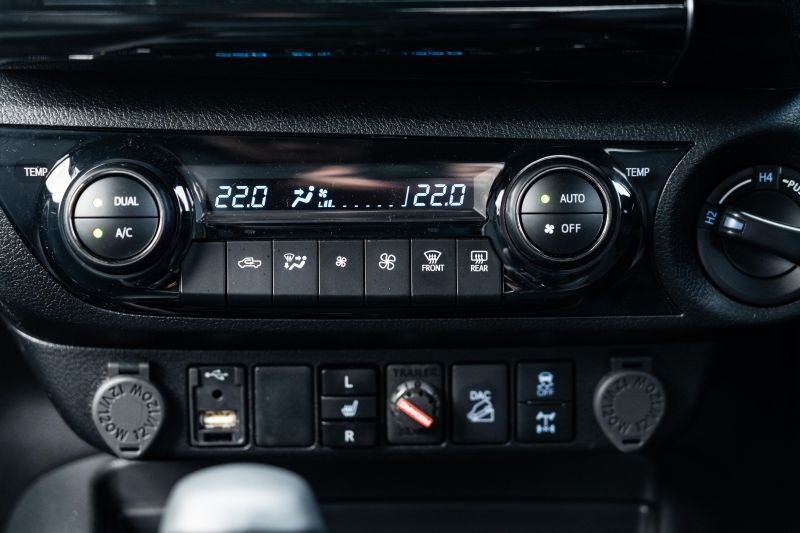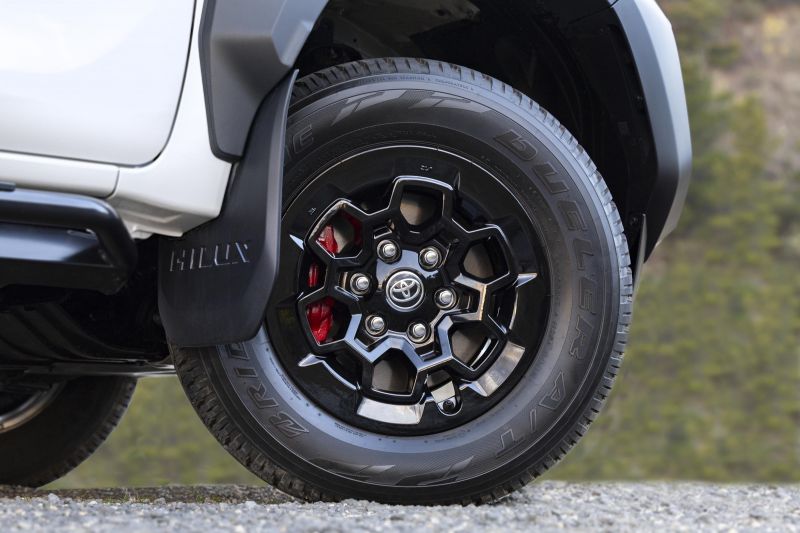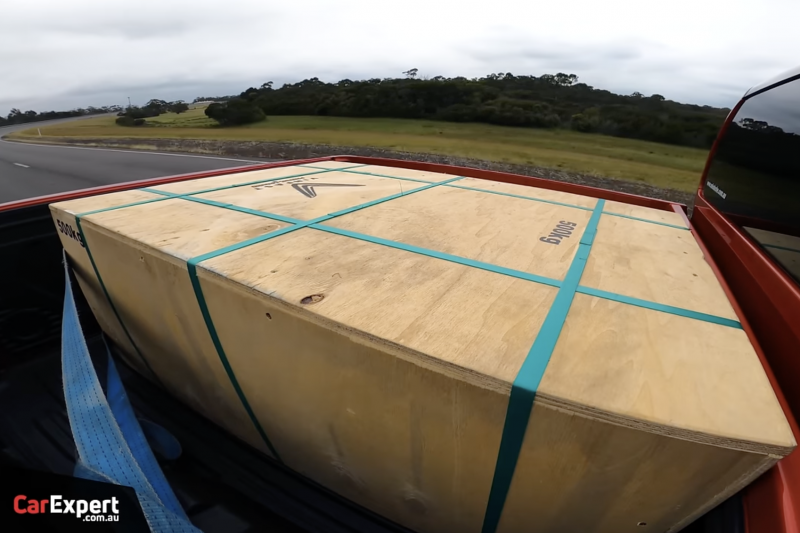The cost of living is rising, so now more than ever saving ever dollar counts.
That got us wondering about the best ways to save fuel. Driving less is one option, but it’s not an option for everyone – so we decided to put some popular theories about how to make every litre count to the test.
Our tests were conducted at the VinFast proving ground in Lang Lang, Victoria, using a Toyota HiLux GR Sport ute powered by Ampol diesel.
Read on to see how each stacked up, or check out the video below.
Our control test was conducted with the car in its default drive mode, with tyres at placarded pressures, and the air-conditioning set to Auto and 23 degrees in the cabin.
We drove the vehicle on the high-speed bowl at the VinFast Proving Ground for the sake of repeatability.
Changing drive modes
Most new cars have some sort of Eco Mode, along with a Normal Mode, and a Sport Mode.
Although they don’t change the amount of power the engine makes, they do usually change the throttle mapping.
In Eco Mode, you need to press the accelerator harder to elicit the same level of response as if you were in Sport Mode.
Does that also have an impact on fuel consumption?
| 60km/h | 100km/h | |
|---|---|---|
| Control (Normal Mode) | 4.9L/100km | 8.1L/100km |
| Eco Mode | 5.2L/100km | 8.4L/100km |
| Power Mode | 5.2L/100km | 8.4L/100km |
Air-conditioning, heating, and windows
What impact does using the air-con and heating have on fuel consumption, and how does it compare with rolling down your windows?
| 60km/h | 100km/h | |
|---|---|---|
| Control | 4.9L/100km | 8.1L/100km |
| Driver’s window down | 5.3L/100km | 8.6L/100km |
| All windows down | 4.9L/100km | 8.5L/100km |
| Air-con on maximum cold | 5.5L/100km | 8.6L/100km |
| Heater on maximum hot | 5.2L/100km | 8.3L/100km |
Tyre pressures
Tyre pressures are important in a few key ways.
Under- or over-inflated tyres can impact the handling of your car, and incorrect pressures can accelerate wear.
Getting your tyre pressures wrong can also cost you money at the fuel bowser, as our figures below show.
| 60km/h | 100km/h | |
|---|---|---|
| Control (placard pressures) | 4.9L/100km | 8.1L/100km |
| 20PSI | 5.9L/100km | 8.9L/100km |
| 42PSI | 5.0L/100km | 8.8L/100km |
Adding weight
Weight is the enemy of handling, performance, and fuel economy.
Don’t believe us? Check out how much more fuel a HiLux with 500kg in the tray uses than the unladen car.
| 60km/h | 100km/h | |
|---|---|---|
| Control | 4.9L/100km | 8.1L/100km |
| 500kg load | 5.6L/100km | 8.6L/100km |



